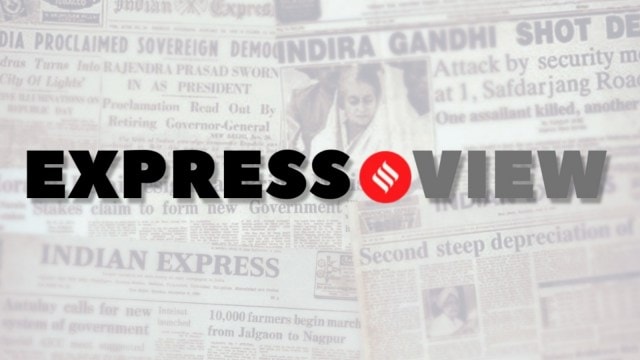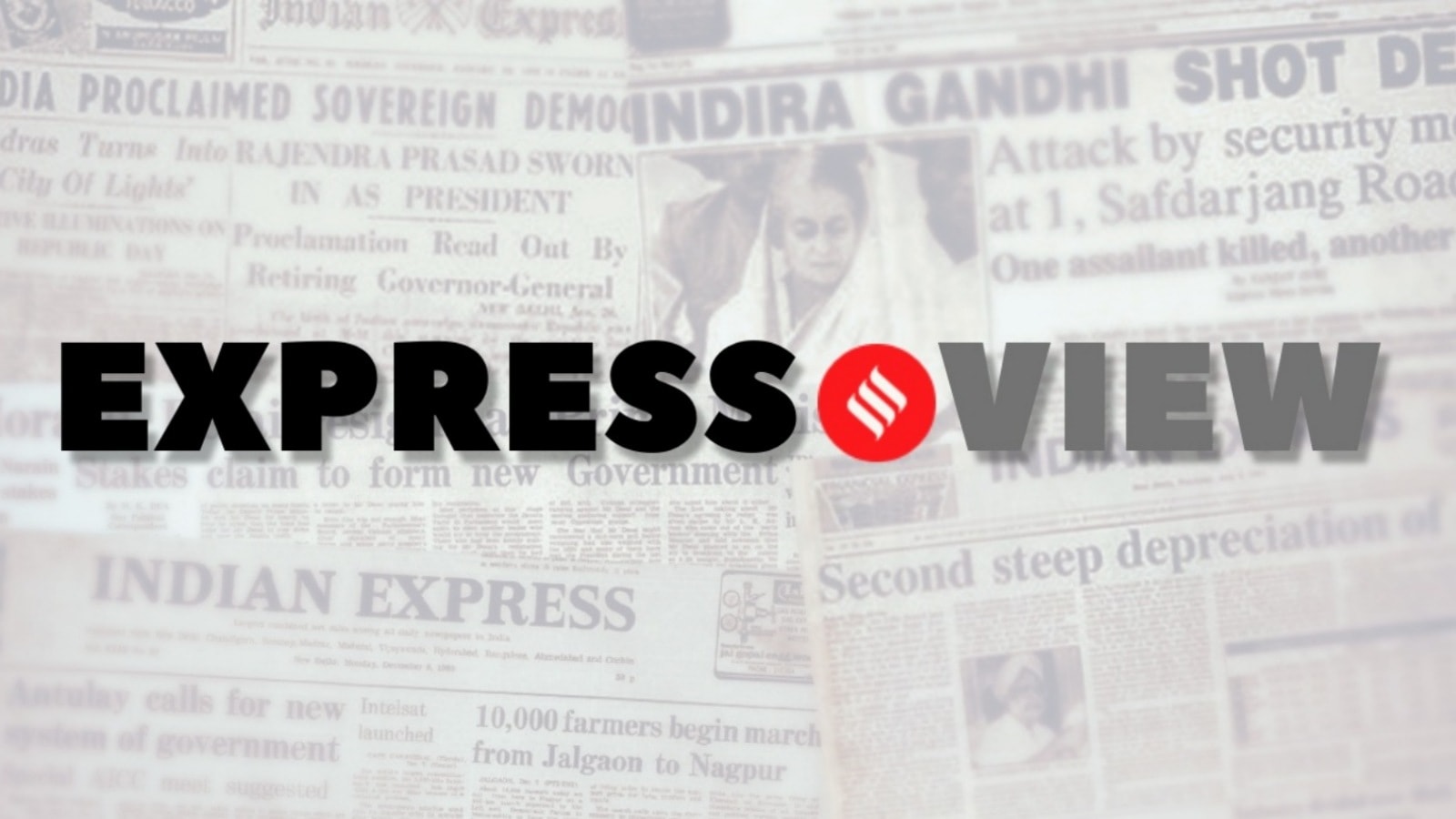Opinion by Editorial
Singh will be remembered, most of all, for showing how less power can be more. How he worked within constraints to seize opportunities, steer breakthroughs that changed the course of the nation

Dec 28, 2024 06:30 IST First published on: Dec 28, 2024 at 06:30 IST
WITH GREAT power come great constraints. More than anything else, perhaps, the long and vivid arc of Dr Manmohan Singh’s life and work embodied this essential truth about democracy. It’s a truth, and a lesson, that so often goes unrecognised. Especially when, the world over, politics is about the powerful taking no prisoners and the winner taking all, seeking to vault over checks and balances. For the studious and soft-spoken boy from Gah in undivided Punjab whose family of meagre means was displaced by Partition, who went on to earn degrees from the world’s storied educational institutions, who came back to hold almost all the top jobs in his country’s economy, and then became Prime Minister, power was a more full-bodied and complex beast. It had an inner life that needed to be navigated with patience and respect for nuance. Manmohan Singh stepped up to the challenge of wielding power with that and more — he brought to it wisdom and decency, dignity and grace, and humility above all.
Look, again, at the two empowering moments in Dr Singh’s career: June 1991 and May 2004. Both strikingly circumscribed, conspicuously hemmed in. In the first, he took oath as Finance Minister in a minority government led by PV Narasimha Rao even as India confronted a balance of payments crisis and stared at the spectre of bankruptcy in a world unsettled by the ripple effects of the unravelling Soviet empire. In the second, he became Prime Minister, after a Lok Sabha election in which a fractured mandate brought back a pale and divided Congress which had yet to fully begin learning to share power with allies. He himself had no political constituency he could call his own, having lost the only Lok Sabha election he was to fight, from South Delhi in 1999. He was appointed PM by a Sonia Gandhi acting on her “inner voice”, which promised to haunt him as much as it enabled him to govern a large and diverse nation, and it did both. He was also the first Sikh Prime Minister from a party blighted by the ghosts of the 1984 massacre following Indira Gandhi’s assassination. Indeed, his August 2005 apology to Sikhs and the “whole Indian nation” was, as a US diplomat would later put it, a powerful “Gandhian moment of moral clarity.”
MANMOHAN SINGH did not come to his positions of power a powerful man. Self-effacing, his genius lay in seizing opportunities and steering breakthroughs that changed the course of the nation. As Finance Minister, with the reforms of 1991, he dismantled four decades of the old economy, industrial licensing and state-led planning, opening up the country to the irreversible forces of liberalisation and globalisation. The reforms he initiated helped lift crores out of poverty, created a middle class that continues to shape the country’s economic and political future. In his term as PM, backed by Sonia Gandhi — even as that relationship was one that he also felt cramped by — he laid the foundational architecture of a modern welfare state, a rights-based edifice starring MGNREGA for the most marginalised, Right to Education, Right to Food Security — all undergirded by the Right to Information and its promise of accountability.
As PM, again, Dr Singh brought India to the global high table by signing the Indo-US nuclear deal, which ended India’s isolation on the world stage and inaugurated its strategic embrace of the US as an ally on a more equal footing. To get the deal through, Dr Singh took on loud opposition from within and without, and especially from the Left, calling its bluff.
OF COURSE, Dr Singh’s path was not smooth. There were accusations that he was silent on too many issues, for too long; that he was much too forbearing of his own undermining by his allies, and more than that, by his own party. There were times when the remote control looked far from remote, the Sonia Gandhi-headed NAC behaved like an extra-constitutional authority. Rahul Gandhi, infamously, tore up an ordinance passed by the Manmohan cabinet in September 2013— an abiding scar on his authority. The Congress also vetoed its own Prime Minister on a key foreign policy issue on Sharm-el-Sheikh.
most read
In his second term as PM, Dr Singh seemed overtaken by the fragilities inscribed in his original compact with power, by the powerplay within Congress, by ally-troubles and a spate of alleged scams in his coalition government. The BJP-led Opposition called him a “weak PM.” It could be said that his second term paved the ground for the Anna Hazare movement which, in turn, presaged the coming at the Centre of the BJP’s Narendra Modi-led single party majority.
AND YET, more than what or who followed him, Manmohan Singh will be remembered, most of all, for showing how less power can be more. Towards the end of his prime ministerial tenure, he said that history would judge him more kindly than his moment. It took a man who could see the future, and who helped turn his nation’s face towards it, to call history so right.
Why should you buy our Subscription?
You want to be the smartest in the room.
You want access to our award-winning journalism.
You don’t want to be misled and misinformed.
Choose your subscription package
© The Indian Express Pvt Ltd



